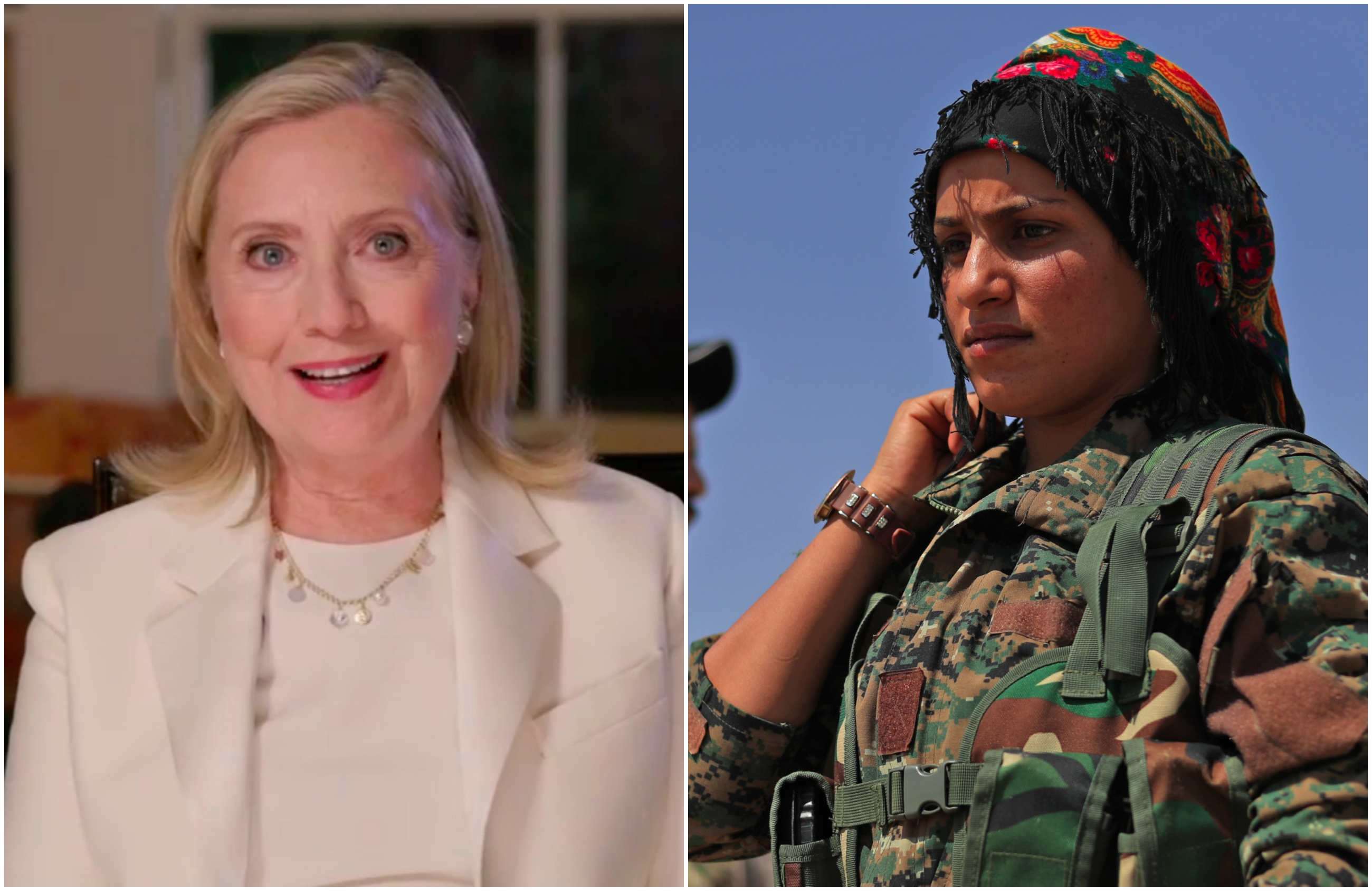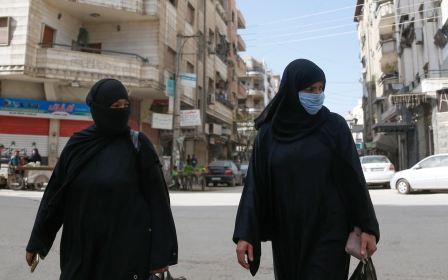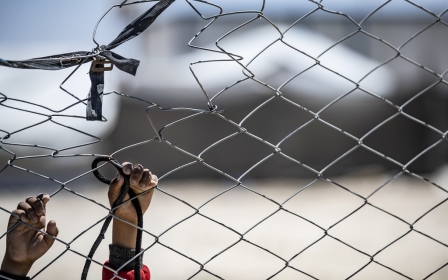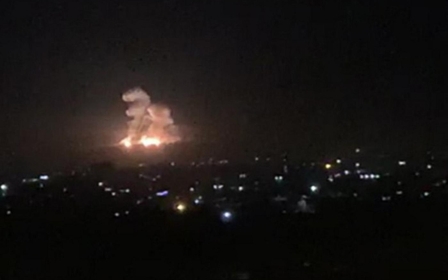Hillary Clinton set to produce TV show about female Kurdish fighters

Former US Secretary of State Hillary Clinton and her daughter have announced their intention to produce a TV drama based on the exploits of female Kurdish fighters in Syria.
The series, which was originally reported on by the Hollywood Reporter on Monday, will be an adaptation of writer Gayle Tzemach Lemmon's The Daughters of Kobani: A Story of Rebellion, Courage, and Justice, a book based on hundreds of hours of interviews with members of the Women's Protection Units (YPJ), the female wing of the Peoples Protection Units (YPG), the armed group who gained international attention for fighting the Islamic State group in Syria.
The series is set to be produced by HiddenLight, the production company founded by Clinton and her daughter Chelsea.
"The Daughters of Kobani is an extraordinary account of brave, defiant women fighting for justice and equality," said Clinton.
"We created HiddenLight to celebrate heroes - sung and unsung alike - whose courage is too often overlooked, and we could not be more thrilled to bring this inspiring story to viewers around the world."
Stay informed with MEE's newsletters
Sign up to get the latest alerts, insights and analysis, starting with Turkey Unpacked
The YPG is an offshoot of the Kurdistan Workers' Party (PKK), an armed left-wing group who have fought a guerilla war with Turkey since 1984.
The fighting has seen at least 40,000 killed and repeated human rights violations by both sides.
Both the PKK and the YPG/YPJ advocate a federalised system in the Middle East to protect ethnic and religious minorities and have espoused feminist and eco-socialist policies in past.
The news of the TV show was greeted with outrage in the Turkish press, which accused Clinton of trying to "whitewash" the PKK.
Clintons' complicated relationships
In the past, the Clinton family's relationship with the PKK and the YPG/YPJ has been mixed.
In 1997 under the presidency of Clinton's husband Bill the PKK was designated a terrorist organisation by the US State Department, a classification that persists to this day, but does not apply to the YPG or YPJ.
The ideological figurehead of both the PKK and YPG/YPJ, Abdullah Ocalan, was also captured in Kenya with CIA support under Bill Clinton's presidency, before being returned for trial to Turkey.
'[This is] the logical endpoint of Western press coverage about the YPJ that doesn't include any analysis of their ideology but is just about them being girl-bosses or whatever'
- Seamus Malekafzali, analyst
Following the outbreak of the civil war in Syria, then Secretary of State Clinton said she shared concerns with Turkey that the country should not become a "haven" for the PKK.
By 2016, however, as the YPG/YPJ were being established as one of the most potent anti-IS forces on the ground, she was advocating arming them.
“I would consider arming the Kurds. The Kurds have been our best partners in Syria, as well as Iraq," she said, during a debate with her then-presidential candidate opponent Donald Trump.
"And I know there’s a lot of concern about that in some circles, but they should have the equipment they need so that Kurdish and Arab fighters on the ground are the principal way we take Raqqa after pushing ISIS out of Iraq.”
Mixed reactions
The announcement was greeted with praise in some corners, incredulity in others.
Many expressed scepticism at the show being produced the Clintons, who have little experience in TV production, although Chelsea briefly worked as a special correspondent for NBC.
"Will opposition to this unavoidably poor film be what truly unites Kurdish and Turkish people? Let's hope," tweeted Turkish political commentator Ariz Kader.
Analyst Seamus Malekafzali said he expected the drama would play down the political underpinnings of the YPJ.
"[This is] the logical endpoint of Western press coverage about the YPJ that doesn't include any analysis of their ideology but is just about them being girl-bosses or whatever," he tweeted.
This article is available in French on Middle East Eye French Edition.
Middle East Eye delivers independent and unrivalled coverage and analysis of the Middle East, North Africa and beyond. To learn more about republishing this content and the associated fees, please fill out this form. More about MEE can be found here.




